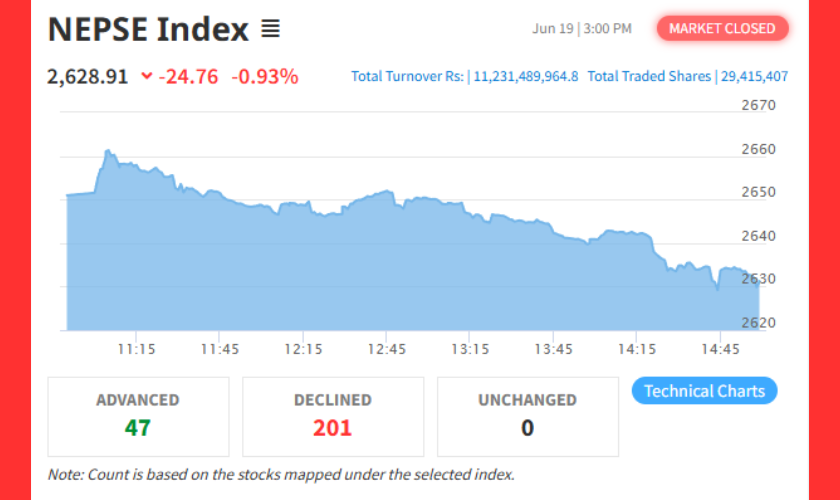Amid growing uncertainty over the future of the Millennium Challenge Corporation (MCC) Nepal Compact—a high-level U.S. foreign aid initiative—the U.S. Embassy in Kathmandu has said that both MCC and the U.S. Mission in Nepal continue to engage with stakeholders in support of a constructive outcome to the ongoing review.
In February, the U.S. authorities notified Nepal of a 90-day halt to payment related to activities funded under the MCC Nepal Compact, as part of the US government’s broader review of all foreign aid programmes.
The Government of Nepal, meanwhile, remains hopeful for continuation of MCC funding. For the fiscal year 2025/26, Nepal hopes to receive Rs 5.68 billion in MCC support. But, it has yet to clarify how much of the Rs 9.9 billion allocated for the current fiscal year has been disbursed so far.
In a statement issued on Wednesday, June 18, the U.S. Embassy confirmed that in February, the U.S. Secretary of State approved a specific exemption to the aid suspension, allowing the MCC Nepal Compact to continue operations. “Under this exception, the MCC Nepal Compact is authorized to continue implementation,” the statement read.
However, the Embassy also noted that “MCC and the U.S. Mission in Nepal continue to engage stakeholders in support of a constructive outcome of the review,” indicating that a final decision has not yet been reached.
Read: MCC Future in Limbo, But Nepal Banks on Continued Funding
Established by the U.S. Congress in 2004, the MCC oversees an annual budget of around $900 million and partners with developing countries to fund infrastructure projects that foster economic growth.
In April, several international media outlets reported that the Trump administration had decided to wind down MCC operations as part of a broader effort to "prevent misuse of American taxpayers’ money." These reports cited leaked internal communications, including staff memos and recorded meetings, which claimed that the Department of Government Efficiency (DOGE) had ordered a phase-out of MCC activities. Staff were allegedly informed on April 23 that all programs would be terminated, and staffing significantly reduced.
Read: Trump Administration Reportedly Preparing to Shut Down MCC: International Media
However, according to Reuters, an MCC official stated that a limited number of ongoing projects—including electricity grid development in Nepal and Senegal, wastewater management in Mongolia, and school infrastructure in Ivory Coast—would likely be allowed to proceed.
Read: Uncertainty Over MCC Stalls Butwal-Gorakhpur Transmission Line Project on Nepali Side
Wednesday’s statement added: “MCC is working closely with the Ministry of Finance and MCA-Nepal to ensure that the activities undertaken or initiated under the compact, including potential new obligations, are aligned with U.S. and Government of Nepal priorities and ensure transparency, sound governance, effective delivery, and prudent risk management.”
MCA-Nepal is the implementing agency for the MCC Nepal Compact. It was established by the Government of Nepal in April 2018 under the Development Board Act, 1956.
Nepal signed the Compact in September 2017, under which the U.S. pledged $500 million and Nepal initially committed $130 million—later revised to $197 million. The total investment of $697 million is intended for critical infrastructure, including upgrades to the East-West Highway and the construction of the 400kV Butwal-Gorakhpur cross-border transmission line, a strategic project for enhancing cross-border electricity trade
Read: US Allows Partial Resumption of MCC Work, Uncertainty Over Full Assistance Remains
While progress continues on the Indian side of the transmission line, uncertainty over U.S. funding has stalled work on the Nepali side, officials told Aathik Abhiyan, a sister publication of New Business Age a few weeks ago.
Nepal’s Parliament ratified the MCC Compact on February 27, 2022, following lengthy political debates and controversy. The ratification was accompanied by a 12-point interpretive declaration reaffirming Nepal’s sovereign rights under the agreement.
The Compact includes a clause allowing either party to terminate the agreement with 30 days’ written notice.
“The United States remains committed to its bilateral relationship with Nepal and supporting the Nepali people through efforts that promote prosperity and long-term economic resilience,” read the Embassy’s statement. Should the US officially pull out, Nepal would be forced to fund the ongoing projects on its own.
Click here to read our reports on MCC.

.jpg)









